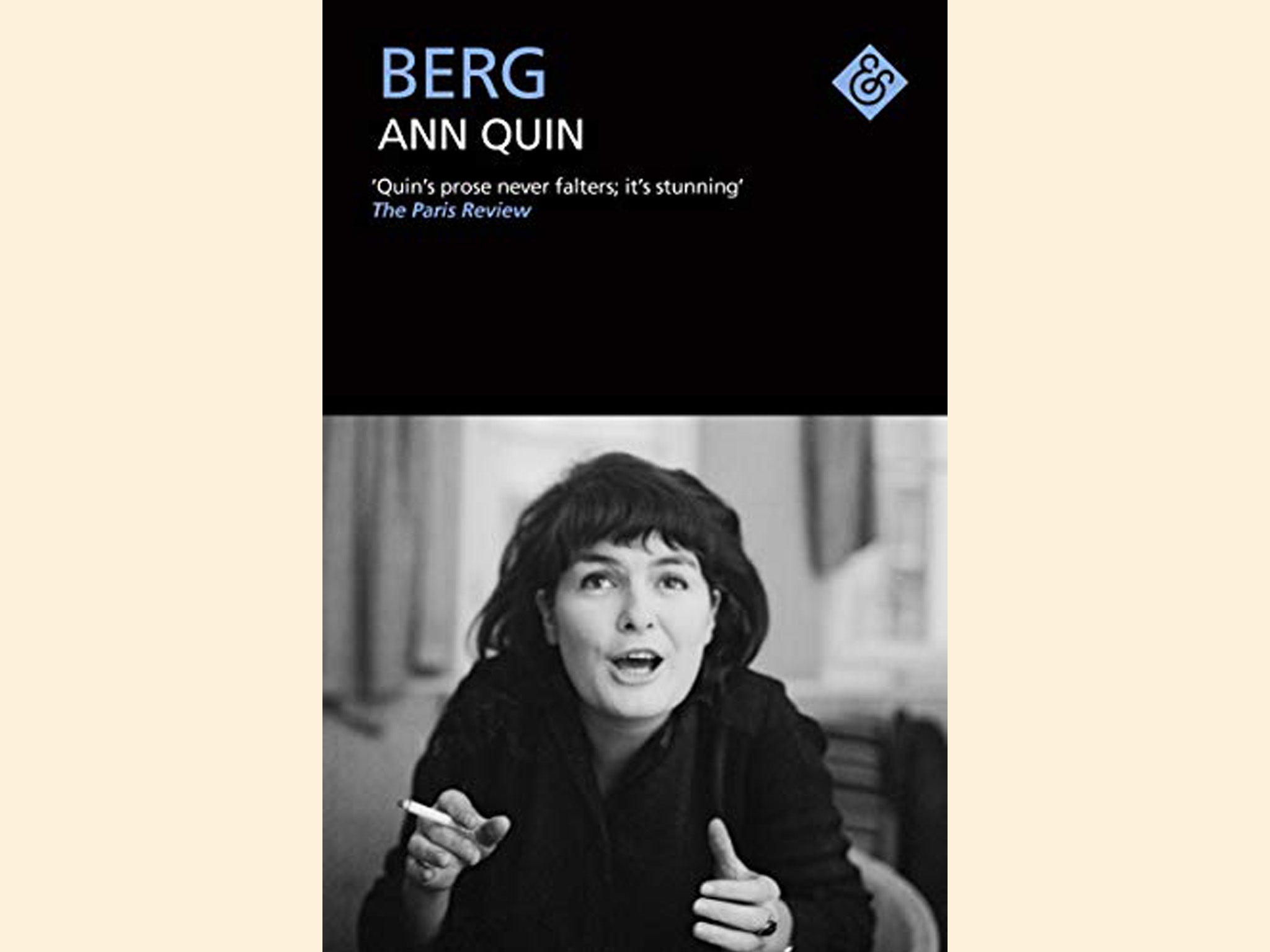Book of a lifetime: Berg by Ann Quin
From The Independent archive: Lee Rourke explores a novel that depicts the seedier side of 1960s Brighton

I first came to read Ann Quin’s mesmerising Berg by accident in 2001. I was browsing a favourite bookshop in Brighton, looking for rare editions of Blaise Cendrars. When I asked the bookseller if he stocked anything by Cendrars he simply shook his head and held up a Calder edition of Quin’s Berg. “Have you ever read Ann Quin?” he asked me. “No, who’s Ann Quin?” I answered. I only had to read the first line to become hooked: “A man called Berg, who changed his name to Greb, came to a seaside town intending to kill his father.”
I took the book home with me that night, and by the end of the month I had read everything Ann Quin had written, which in those days was quite a difficult task as Calder editions were hard to find. Berg (1964) is one of Quin’s four novels; the others are Three (1966), Passages (1969) and Tripticks (1972). I like all of them but I guess it’s Berg that has had the longest-lasting influence on me as a writer.
Berg is a sumptuous novel that cuts to the heart of things. It’s a debut that still feels as modern as anything published today, and although it’s clearly Quin’s own paean to the Nouveau Roman novelists she loved and admired, it still manages to contain its own unique and quintessentially British voice that is both recognisable and hauntingly peculiar. Berg is a wintry seaside novel that is Freudian, Oedipal and steeped in Greek tragedy, but also a heady mix of the postmodern, grotesque and the macabre, in which a ventriloquist’s dummy is brutally mutilated and the British novel is subtly unravelled and put back together again amid an ethereal tale of loss and displacement.
I have often thought that the modern novel wastes far too much time crafting a reality it can never attain. Even the new wave of realist novels, which cleverly mess around and turn inside out the same reality they desperately cling to often stall, and create nothing new as a result. Berg simply eschews the superfluous dilly-dallying of our established humanistic tradition and cuts straight to place, movement and time, creating a mode of fiction that slices into its readers’ psyche like a scalpel into the heart. The prose of Berg is intense, off-key and sometimes odd, but also effortless and free of baggage. It takes the reader to places most novelists could only dream of – both quicker and with surgeon-like precision to boot.
I truly feel that it’s one of the great British novels, eerily depicting a seamier side of Brighton – Quin lived and died there, swimming out to sea and never coming back in 1973 – that can still be felt today, especially on cold, dark wintry nights, the sea crashing onto the pebbles just below the ageing esplanade. Berg should be read by everyone, if only to give us a glimpse of what the contemporary British novel could be like.



Join our commenting forum
Join thought-provoking conversations, follow other Independent readers and see their replies
Comments